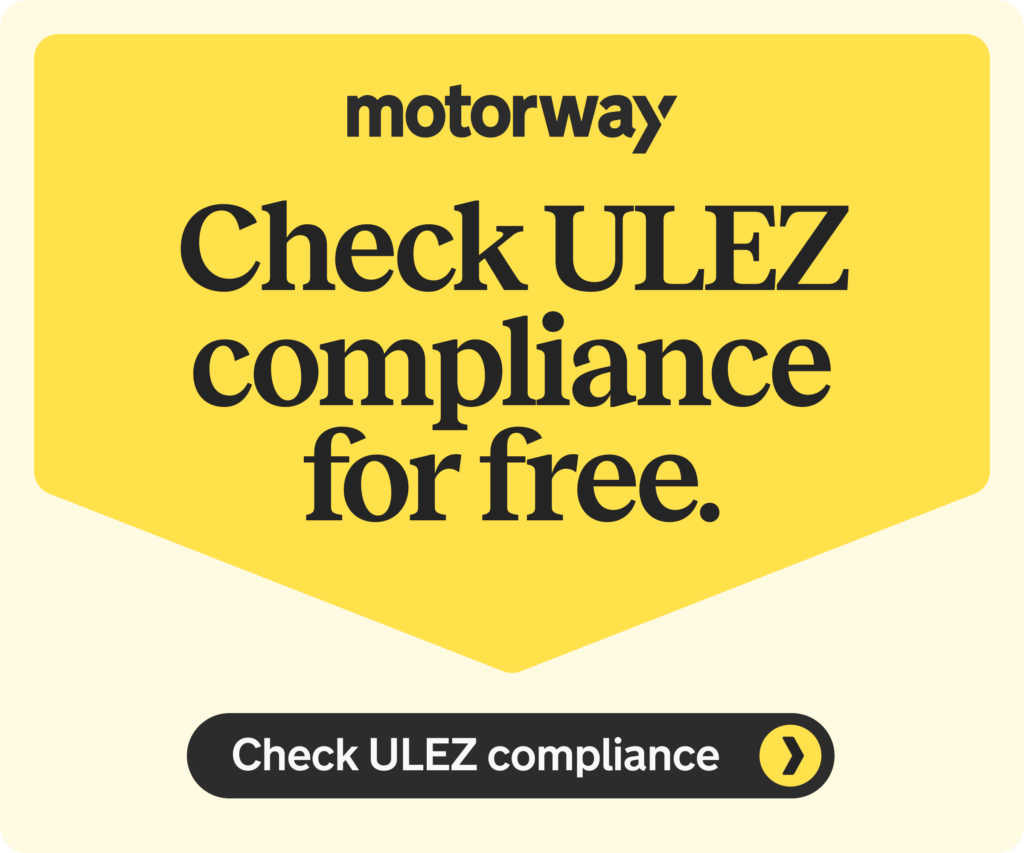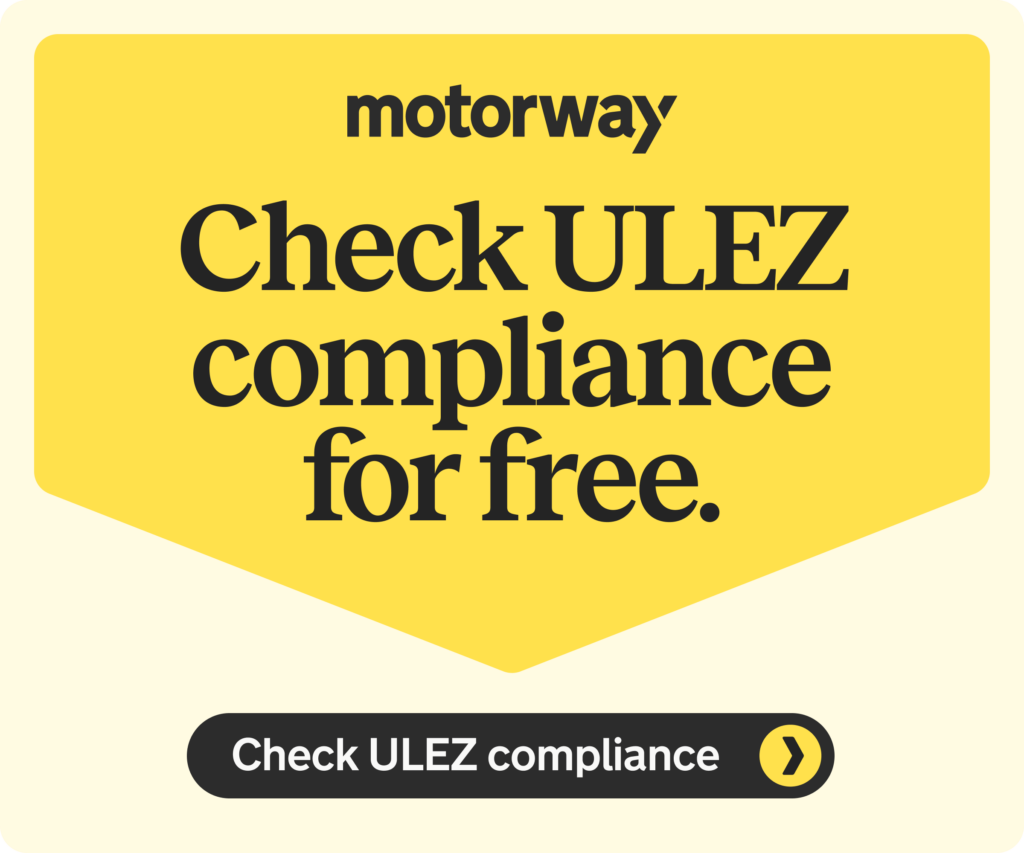
Low Emission Zones (LEZs) are government policies brought in as a way for cities to try and reduce pollution and improve air quality. They were brought in to cut down the number of drivers of old vehicles in inner city areas. Ultimately, they are improving the air quality of cities, however could affect your vehicle value. This guide explains why now might be the perfect time to sell your car.
Low Emission Zones explained
- What is a Low Emissions Zone (LEZ)?
- What sort of cars will face a LEZ or ULEZ charge?
- What are the European Emission Standards?
- How can I check if my car is LEZ compliant?
- How much is a LEZ or ULEZ charge in 2024?
- Is any car future LEZ compliant?
- Sell your car and go green

What is a Low Emissions Zone (LEZ)?
A Low Emissions Zone (LEZ) is a defined area where high-polluting vehicles are restricted or charged for entry. They are commonly found in city centres. They aim to target older, high-polluting, internal combustion engine (ICE) vehicles.
The first UK LEZ was introduced in London in 2008 and covered the whole of Greater London. It only affected vans, buses, coaches and lorries, however cars and bikes are affected by the current ULEZ regulations. You can find LEZs all around the world, including in Beijing, Oslo, and Berlin.
In the UK, major cities including Brighton, Oxford, Norwich, Sheffield, Newcastle, Edinburgh, and Manchester all have their own LEZs. In 2021, Birmingham launched its Clean Air Zone (CAZ) which is a type of LEZ.
What sort of cars have to pay a LEZ or ULEZ charge?
Greater London’s ULEZ affects cars and vans that don’t meet the European Emission Standards. The following vehicles are non-compliant with Greater London’s ULEZ:
- Motorcycles that don’t meet Euro 3 standards
- Petrol cars, vans, minibuses that don’t meet Euro 4 standards
- Diesel cars, vans, and minibuses that don’t meet Euro 6 standards
- Lorries, buses, coaches and heavy vehicles that don’t meet Euro 6 (Nox and PM) standards
In contrast, the LEZ in Greater London only applies to the following:
- Large commercial vehicles that weigh more than 3.5 tonnes
- Minibuses
- Vans
- Motor caravans and ambulances
You can check your car for compliance within London’s ULEZ area with our ULEZ checker.
What are the European Emission Standards?
The European Emission Standards, also known as Euro Standards, are a set of regulations established by the European Union (EU) to control emissions from vehicles and other sources of air pollution. The current Euro Standards for vehicles in the European Union are:
- Euro 1 (introduced in 1992)
- Euro 2 (introduced in 1996)
- Euro 3 (introduced in 2000)
- Euro 4 (introduced in 2005)
- Euro 5 (introduced in 2009)
- Euro 6 (introduced in 2014)
- Euro 7 (due 2025)
The European standards aim to reduce harmful exhaust emissions such as:
- Nitrogen oxide (NOx)
- Particulate matter (PM)
- Hydrocarbons (HC)
- Carbon monoxide (CO)
How can I check if my car is LEZ compliant?

If your car was made after 2006, there’s a good chance it is LEZ compliant throughout the UK. You can use our ULEZ checker if you’re uncertain – if your vehicle looks to be ULEZ-compliant, it will almost definitely be compliant with any other LEZ in the country.
How much is a LEZ or ULEZ charge in 2024?
The cost of entering Greater London’s LEZ is currently:
- £100 per day for vans or specialist diesel vehicles and minibuses that do not meet Euro 3 emissions standards.
- £100 per day for HGVs, lorries, vans, buses, minibuses, and coaches over 5 tonnes which do not meet Euro 6 standards, but meet Euro 4 standards
- £300 per day for HGVs, lorries, vans, and specialist heavy vehicles over 3.5 tonnes; buses, minibuses, and coaches over 5 tonnes, which do not meet Euro 4 standards.
The cost of entering the London ULEZ zone for non-compliant vehicles is:
- £12.50 a day for most vehicles such as cars, motorbikes and vans weighing 3.5 tonnes or less
- £100 for heavy vehicles such as lorries over 3.5 tonnes or buses and coaches weighing more than 5 tonnes
Is any car future-proofed for LEZ compliance?
Yes – electric cars! While they can seem like a big investment, the upcoming 2035 switchover could make them a savvy choice for car buyers. They will also protect buyers against any rules that might come into force regarding noise pollution too.
Ultimately, even if your current vehicle is LEZ compliant now, it’s hard to say whether that will always be the case. The only car that will completely satisfy the emissions regulations as they grow stricter and stricter is one that doesn’t depend on fossil fuels.

Selling your car?
Read about everything you need to know about how to sell your car with more guides here. There’s a lot to learn as Clean Air Zones and emissions standards in the UK change in the run-up to 2035.
